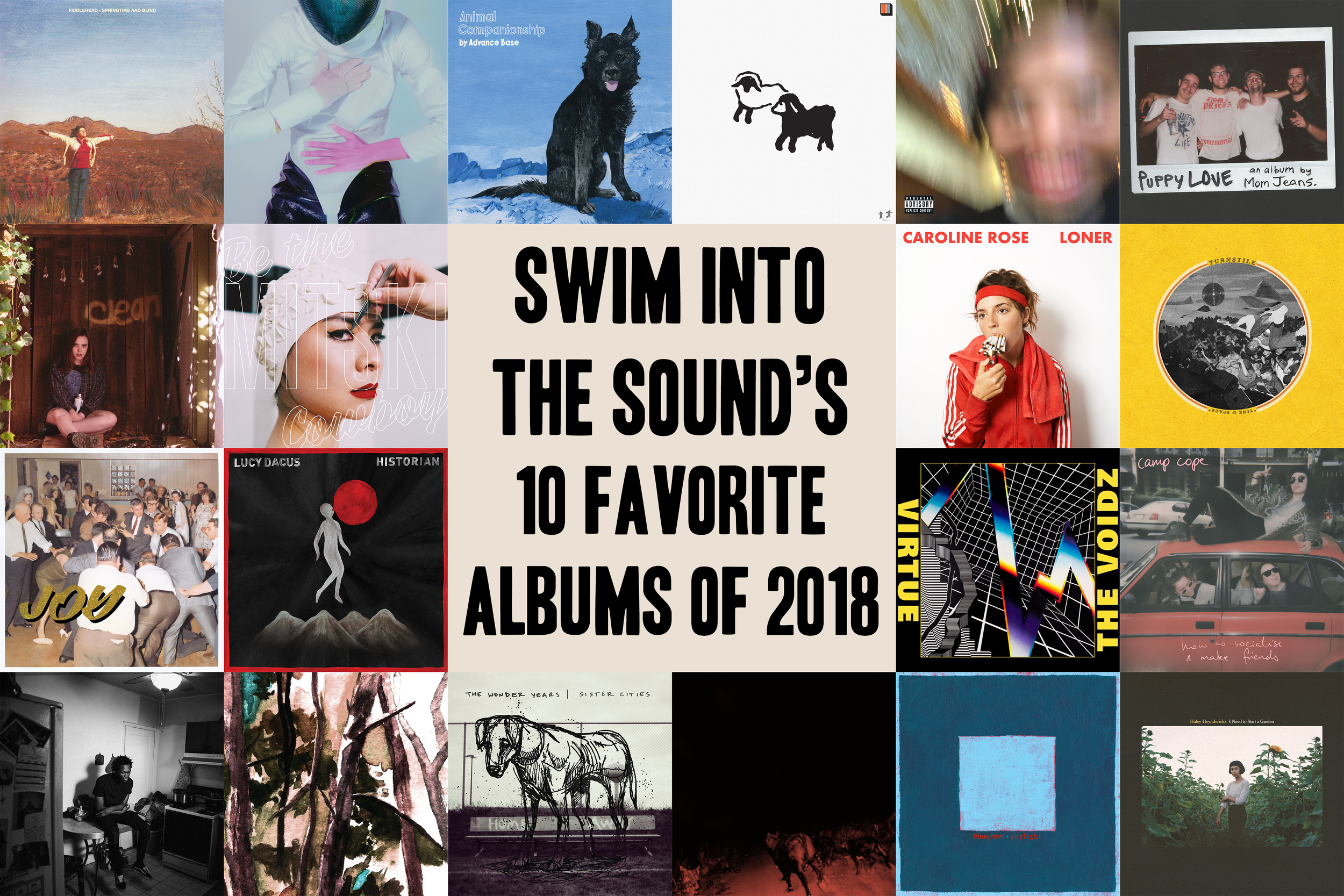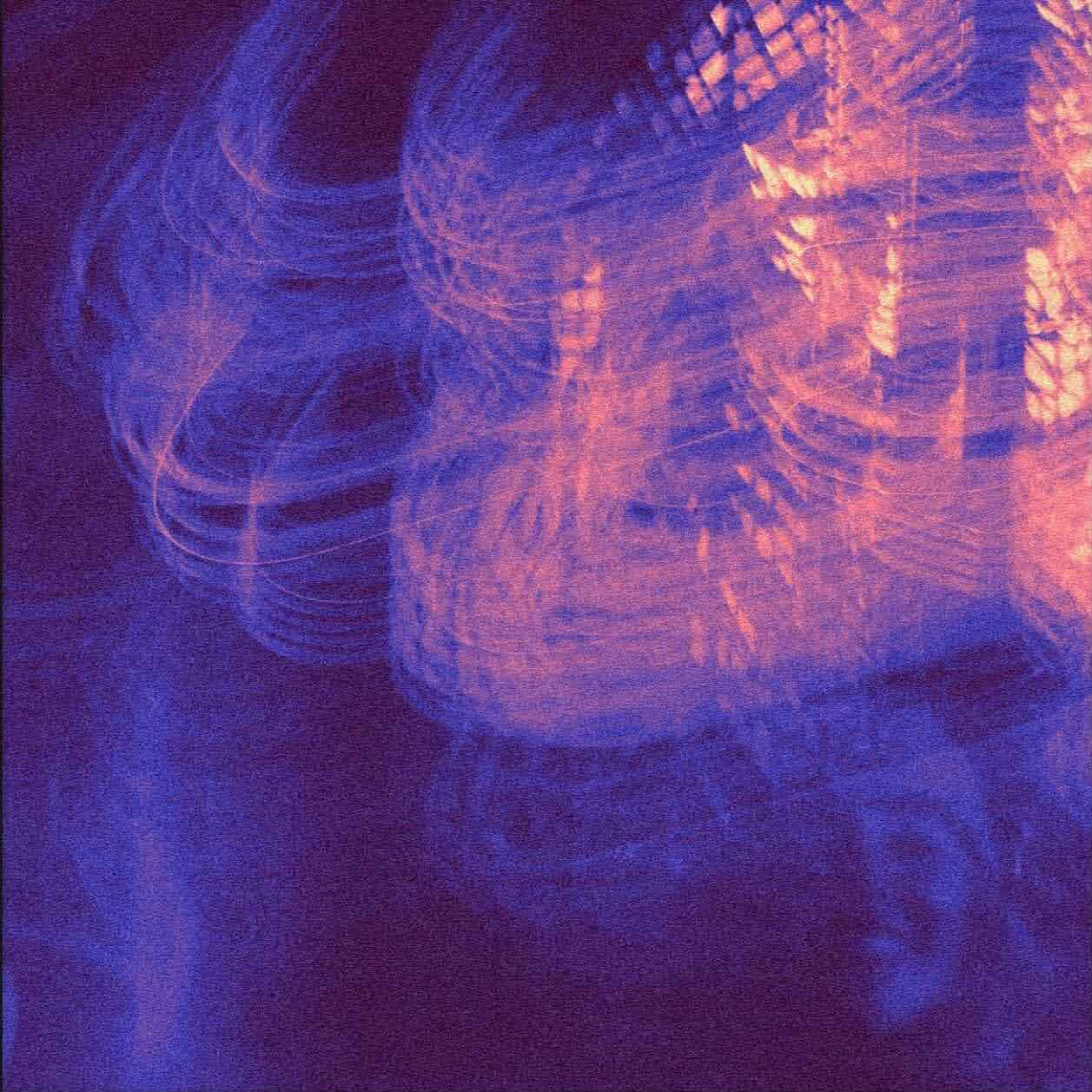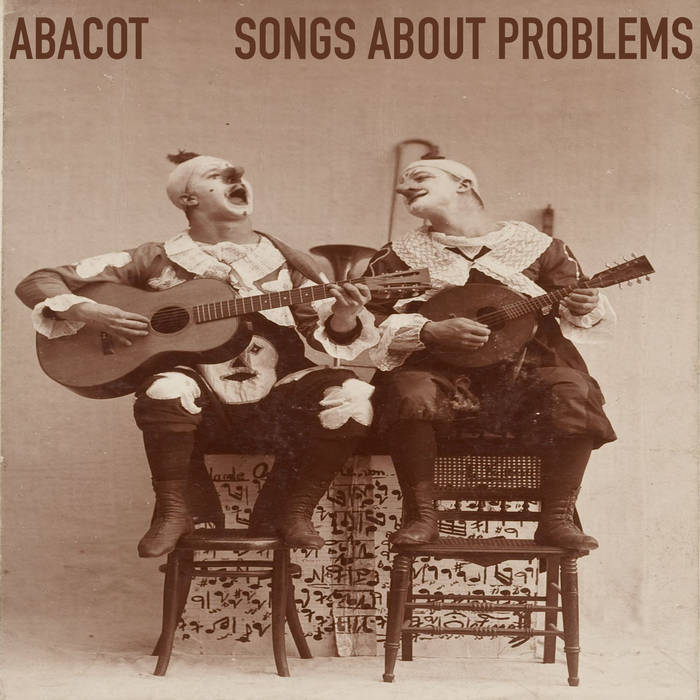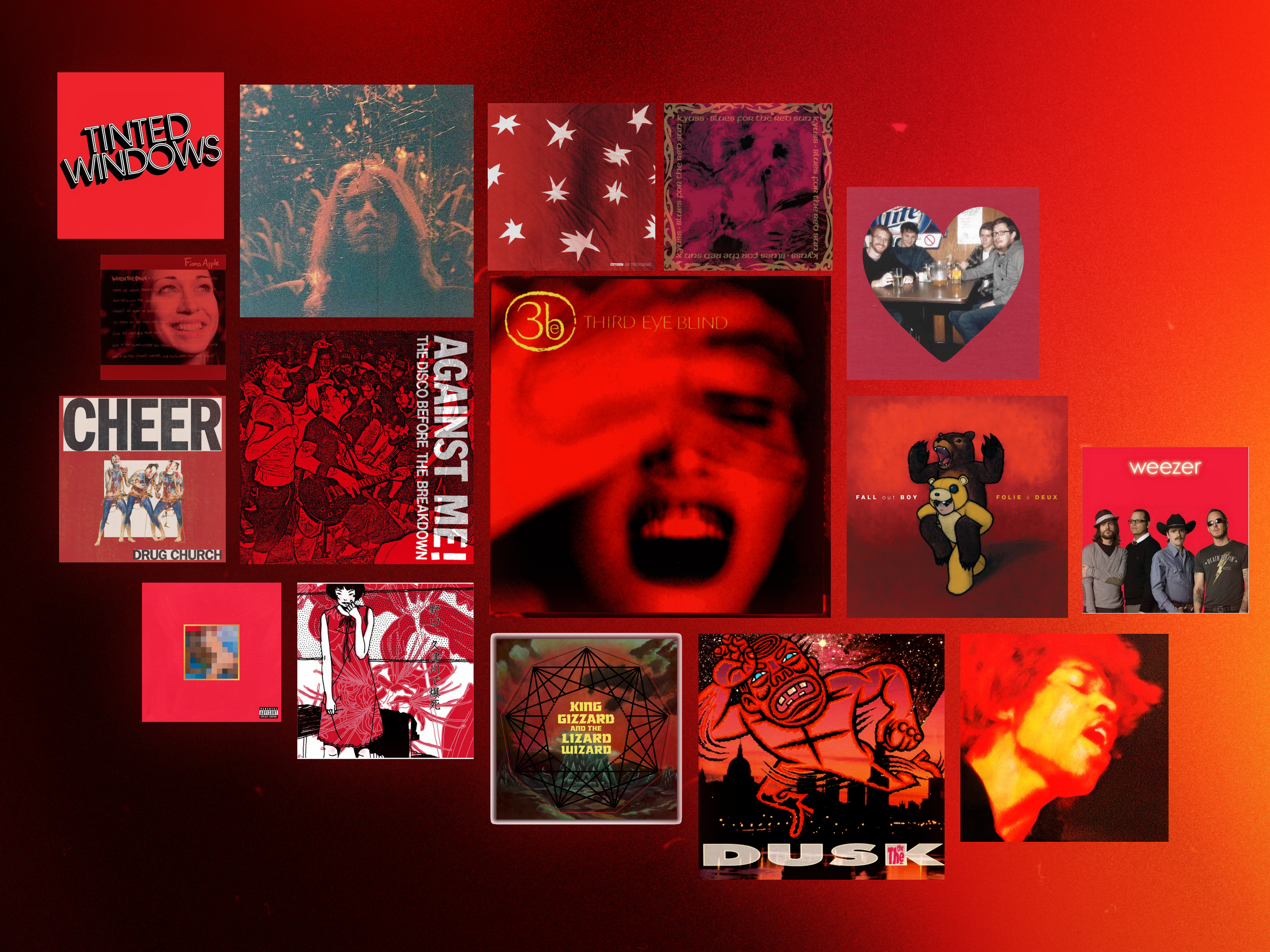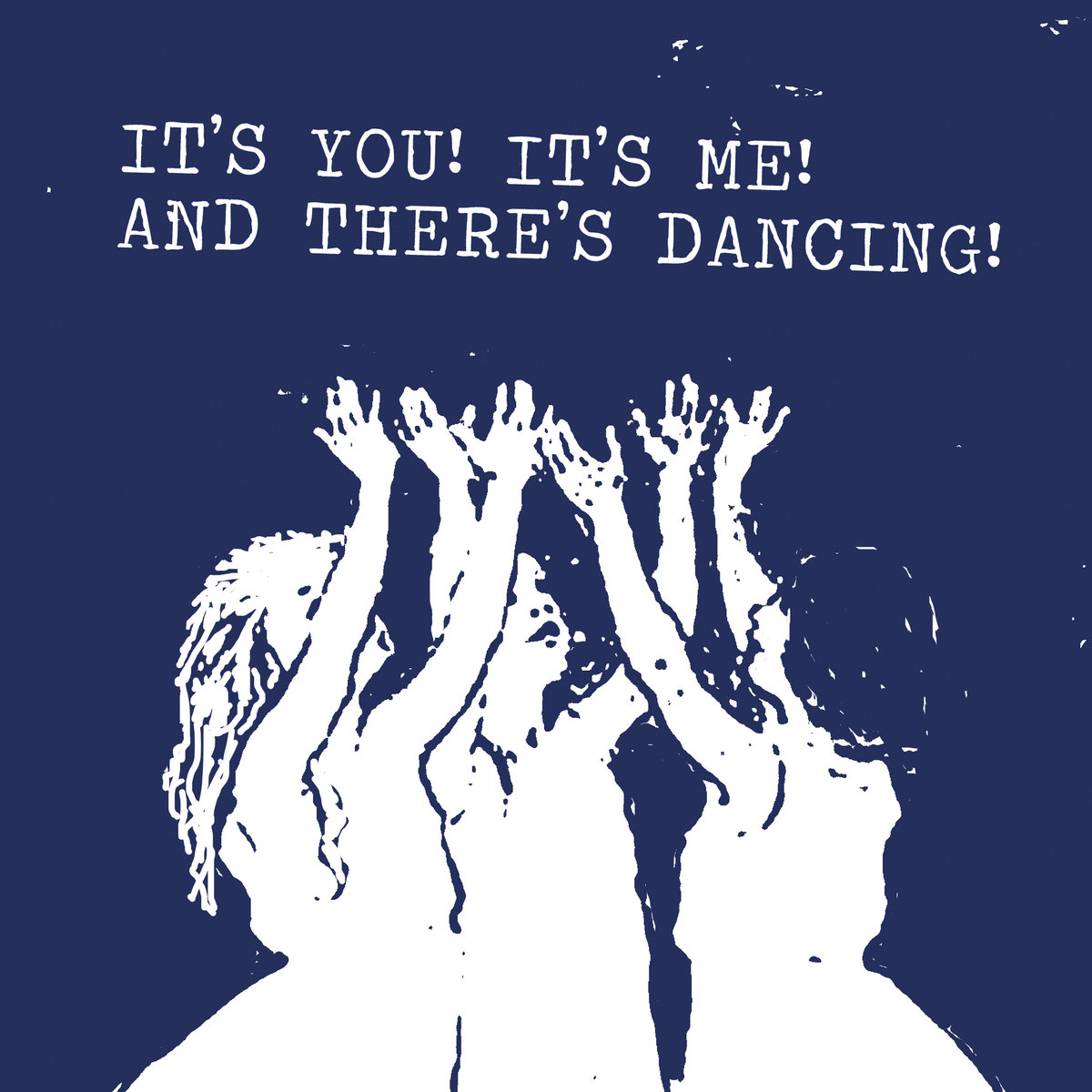Swim Into The Sound’s 10 Favorite Albums of 2018
/All Hail The Algorithm
If there was any sort of theme to 2018, it was Discovery. Discovery on a personal level, discovery on a professional level, and (most importantly) discovery on a musical level. This year I landed a new job, moved across the country, and started a new life three thousand miles away from everything I’ve ever known and loved. I met people I would never have crossed paths with otherwise and experienced things that only this opportunity could have afforded me.
On the blog front, I kept up to date by writing about new releases each month. I conducted my first interview, got paid actual money to write reviews, and hit dozens of other landmark firsts that made running this blog feel like a fresh, rewarding, and challenging endeavor all throughout the year.
As 2018 ticked on and my album of the year list began to take shape, an interesting trend emerged: most of my favorite albums of 2018 were from band’s I’d never listened to until this year.
Discoveries can be found in the most unexpected places, and sometimes coming into something entirely fresh leads to the most impactful results. Whether it’s discovering a band live in-concert, reading a compelling review, or hearing them pop up in a Spotify playlist, there’s something rewarding about that feeling of discovery.
These are the albums that helped me. The projects that brought me joy, sorrow, pain, and everything in between in a year when emotions ran high, and everything seemed bound for cosmic change. These albums are the soundtrack to the development of my life. A year in flux and a life in motion. These are my favorite albums of 2018.
10 | Advance Base - Animal Companionship
On some level, it’s easy to make songs that anyone can relate to. The biggest pop songs in the world are all about falling in love, or breaking up, or hanging out with your friends. Those are universal experiences. They’re songs written so broadly that’s you have to go out of your way to not connect with them. What’s more difficult than that is instilling that same feeling of connection through a life that the listener hasn’t experienced. To convey a sense of empathy through a portrayal so specific that, while not experienced first-hand, it loops back around to being relatable. That’s what Advance Base has done with Animal Companionship, and it’s a marvel.
A loose concept album centered around pets, Animal Companionship finds Owen Ashworth rumbling through a series of ten tales all depicting a handful of ordinary Midwesterners. While their stories would sound bland being told in any other way, the Chicago folk singer has a way of delivering them which such gravitas and specificity that they become extraordinary. His vocals never rise above a steady barrel-chested hum, but emotions run high throughout the record.
Often accompanied only by keys or a solitary drum machine, Ashworth’s voice (and words) are almost always front and center for the listener to ingest and ruminate upon at their own pace. The tales are crystalline, realized, and lived-in as if Ashworth himself has lived all of these disparate timelines and experiences of the album’s fictional characters. Whether it’s running into an ex’s dog tied up outside of a coffee shop, or a friend who still has an answering machine just so they can leave their pet voicemails, every word is measured and impactful. It’s a frigid-sounding record that, yes, is sad, but is also sprinkled with moments of hope and even joy. It’s a portrayal of humanity framed through the animals who, through their proximity to us and our lives, make us a little more human in the process.
9 | Hop Along - Bark Your Head Off, Dog
I’ve spent about three years trying to understand the appeal of Hop Along. Between the time they released 2015’s Painted Shut and this year I’ve listened to every one of their albums multiple times and even seen them live, but for some reason, the band never stuck. Right when I was about to write them off telling myself “you don’t have to like everything” the group released Bark Your Head Off, Dog and everything finally clicked into place.
While it took me a while to figure out, my biggest problem with Hop Along has always been that Frances Quinlan’s vocals are so good they overshadow everything else in most of their songs. There’s nothing wrong with the group’s instrumentals; I would just rather hear Quinlan sing over something that rivals her intensity.
I gave Bark Your Head Off a few cursory listens before the final stretch of three songs began to sink their teeth into me. They were biting, fast-paced, and had enough ornamental flourishes that they rewarded repeat listens. They felt emotional and heartfelt while still retaining the personable stories Quinlan is known for. In short, the final three songs on this record were everything I’d been waiting to hear from Hop Along for years.
Something about those three tracks must have opened my eyes because I eventually found myself listening to Bark Your Head Off, Dog front to back and being captivated by every track. I now realize the fault in my prior attempts was not the band, but me. I was looking for aggressive smoldering pop-punk songs, but in truth Hop Along is crafting loving (if not a little damaged) indie rock with a folk bent. It’s the musical equivalent of a glass of red wine, and either my taste was not refined enough to enjoy it before, or I came into their music thirsty for a cheap beer when I should have been savoring the complicated notes. Bark Your Head Off, Dog is a triumphant and passionate record that’s beautiful, rich, and worth savoring.
8 | Turnstile - Time & Space
Clocking in at a grand total of 25 minutes, the longest song on Turnstile’s Time & Space is three minutes and 15 seconds. With every other track hovering between 46 seconds and two minutes, the album ends up feeling like an exercise in violent minimalism.
Making a name for their photogenic live shows, engaging crowds, and hard-hitting songs, Time & Space vaulted Turnstile to the forefront of the underground rock scene. The record itself is picture-perfect hardcore and irrefutable proof that you don’t need anything more than a solid riff and a driving chorus to make great music.
Not only that, the band’s sophomore effort proved to be surprisingly-accessible, gaining them coverage, accolades, and glowing reviews from dozens of mainstream publications. Walking an intoxicating balance of punk and thrash, Time & Space is an outpouring of emotion. It’s barebones, straightforward, and efficient. It’s artistically-fulfilling, temperamentally-satiating, and even surprisingly catchy at times. It’s everything hardcore needs in 2018, and proof of what it can one day be.
7 | The Wonder Years - Sister Cities
When I saw the Wonder Years back in May, lead singer Dan Campbell took some time between songs to make sure everyone had heard their newest album. After the resounding swell of voices quieted, he went on to explain a bit about the concept behind Sister Cities, specifically how the opening track “Raining in Kyoto” embodies many of the LP’s recurring themes. “It’s a record about connectivity, commonality, and empathy” Campbell explained to the rapt Portland audience.
Sister Cities is a record about distance, but it's also a record about lack of distance. It's about the commonalities of man and the universal things that bind us as a race, about how little the physical space between people really matters when it comes down to it. Sister Cities is an album about human connection on a physical, emotional, and spiritual level.
While it's reinforced by music videos and lyrics throughout this album, this concept of connectivity is exemplified best by the record’s 6-minute closer “The Ocean Grew Hands to Hold Me.” In the song, Campbell uses the ocean as a stand-in for multiple important entities in his life. At first, the ocean is spoken of literally as a physical body of water that we're all attached to in some form or another. As the song plays out, the ocean becomes a metaphor for the brotherhood of humanity and the salvation we can find in our loved ones.
Thematically, “Ocean” ties back to the opening track by referencing the passing of Dan's grandfather, but even that specific event is just a larger allusion to life, death, regret, and other inescapable human feelings that bond us together. The final verse of the song discusses illness and religion (two recurring topics for the band) but quickly moves onto real people in Dan's life. He talks about finding support in others when he needs it and learning to embrace that. Before a grandiose swell of music carries the record to a close, the final message of the album is a vital one: humanity is everything. Campbell explains there’s no fault in feeling defeated or asking for help. In fact, learning to give in when things are out of your control and growing to rely on those around you is an important part of life because sometimes that’s all we have.
6 | Mom Jeans - Puppy Love
If you were to ask Eric Butler what type of music Mom Jeans makes, he would simply answer “pop.” Not emo, not indie, not pop-punk, but straight-up pop music. In truth, Mom Jeans is a little bit of all these things, but if you go into Puppy Love with an honest heart and an open mind, you’ll quickly understand exactly what he means.
The band’s sophomore album is a release that appears unassuming on first listen. You might hear it a few times and think nothing of it. Then you may find yourself humming a melody that subconsciously embedded itself somewhere in your brain. Then on a relisten, a chorus from a deeper cut will grab you, and you’ll find yourself queueing that song up too. Then you find yourself identifying with a lyric from the opening track about staying in, eating Cheetos, and drinking chocolate milk because that’s exactly what you were doing this weekend too.
Puppy Love is my most-listened-to album of 2018, and that’s because Mom Jeans truly are creating pop music. It’s pop-punk perfected. It’s catchy, melodic, relatable, and keeps you coming back for more. Whether it’s screaming about moving out of your parent's house, or getting confessional with your dog, Mom Jeans have found a way to get to the heart of it all.
5 | Lucy Dacus - Historian
Historian is the soundtrack to a life in decay. Opening track “Night Shift” starts calm and collected as a slow-moving folky jam extending a middle finger to evil exes. Gradually, the song builds without the listener realizing it, and suddenly Dacus is belting out the track’s namesake in a piercing Julien Baker-esque cry that pulls on your heart like an anchor. It’s a stunning moment that commands your attention and rips you into the reality of the song, if only for a moment.
This jaw-dropping performance is just one of many surprises packed on the follow-up to Dacus’ impressive debut No Burden. Topics range from relationships in collapse to the imperfect nature of the self. It’s as disquieting as it is engaging, every word hinged around expert instrumentation and melodies that alternate between lying bare and exploding to life.
“Pillar of Truth” is the record’s monumental penultimate track, an ode to Dacus’ dying grandmother who faced the unknown head-on with level-headed composure. The song peaks with a volcanic guitar solo that paves the way for the more pensive title track which acts as the record’s thesis statement and end credits. Historian is an album about failure. About collapse. About annihilation. More importantly, it’s about finding the power to recover from those feelings even when life leaves you feeling ragged and profoundly-alone… which is more of an inevitability than any of us would like to admit.
4 | Caroline Rose - Loner
Sometimes it’s easy to forget that rock music is supposed to be fun. And throughout all of 2018, I found no single album that embodied “FUN!” (caps, exclamation point and all) than Caroline Rose’s Loner.
Loner is an album about being your uncool self and learning to embrace it. About saying ‘fuck you’ to the people that tell you to smile when you don’t want to smile. About sexism, bad decisions, and menial jobs. About being the one person at the party without a cool haircut. It’s a blend of hyper-specific yet universal songwriting that hits home for me, all of which is packed in an easily digestible 30-minute record.
While the album itself is a wonderfully-varied and full-throttle romp, Caroline Rose’s live show adds a different level onto the proceedings entirely. From executing a flawless Macarena on-stage during an instrumental break to a rockin’ recorder solo, and even a loving cover of Britney Spears’ “Toxic,” I’ve never seen a band have this much fun on stage making music, and that’s something we could all use more of in 2018.
3 | Bambara - Shadow On Everything
You wake up. A light breeze has blown the covers off of your body. You reach out to grab your sheets and pull them back up, but as your eyes open you notice you’re no longer in your room. You sit up, look around and see the horizon in every direction. You’re in the middle of a desert. It’s 3 in the morning, and you don’t know how you got here. That’s what listening to Shadow On Everything is like.
Rumbling, snarling, and demonic, Shadow On Everything is a post-punk record with a southern twist. Described by the band as a “western gothic concept album,” it only takes one listen to see what that means. From front to back, Bambara’s sophomore effort is a morbid, disorienting, and dream-like exploration of humanity’s dark side.
Shadow on Everything sounds like an episode of True Detective come to life, complete with all the violent self-destruction, overwrought sentiments, and foreboding imagery. Each song serves as a disturbing vignette, bonded together only by the ever-present sense that something horrible is lurking in the shadows just out of sight. It’s terrifying, engaging, and striking in a way that grips your attention and punishes you for looking away. A character study of humanity’s dark side and we have no choice but to stare into the reflection. Unforgiving desolation and absolute obliteration of the soul.
2 | Haley Heynderickx - I Need To Start A Garden
We tend to measure our lives based on major events. When we tell ourselves our own story there are act breaks and demarcation points that signal a new phase of our ongoing story. While it feels like we’re perpetually in the most “important” period of our own existence, not everything is that life and death. Sometimes directionlessness and absence of action are just as harrowing as loss or heartbreak, and that sort of millennial malaise is the exact sentiment at the heart of I Need To Start a Garden.
The abundance of choice that comes with the first phase of adulthood is overwhelming. The sprawling omnidirectional decisions can feel endless, and sometimes failing to take that first step can lead to a cataclysmic avalanche of self-doubt and paralysis.
Garden is a folk album. It’s instrumentally-simple, lyrically straightforward, and emotionally-bare. Despite the simplicity of its base components, the end result feels like something much more complex and grand than the sum of its parts.
I first heard of Haley Heynderickx one week after her album was released, and even then I felt immediate guilt of not having listened to it even earlier. That’s how badly I needed this record in my life in 2018. I turned around a full review of the album within a month of its release, but Heynderickx’s messages of listless 20-something pain cut a path directly into my heart at a time when I was experiencing all of these exact feelings. To hear these struggles put to music was not only reassuring, it was spiritually-affirming.
I now realize the difference between childhood and adulthood isn’t a feeling of assurance or confidence in your actions because that fear of the unknown never truly goes away. I may have felt listless, disheartened, and directionless this spring, but now having moved across the country, starting a new job, and embarking on new artistic endeavors, I’m just as unsure of myself as ever before. Adulthood is not knowing what you’re doing with one-hundred percent certainty. Adulthood is knowing that feeling of uncertainty is always going to be there, acknowledging it, and being okay with it as much as you possibly can.
1 | Fiddlehead - Springtime and Blind
Sometimes music is the only thing that makes sense. Even when the world is changing, even when nothing works the way it’s supposed to, even when life throws everything it has at you, music is always there. Music has no judgments and no preconceived notions. It’s an objective outlet that exists to execute, quell, accentuate, or invert whatever mood you’re feeling at that time. There’s music for happiness, music for long drives, music for love, and sometimes there’s music for grief.
Some of the greatest records of all time deal with insurmountable pain. 40-minute voyages into an artist’s psyche in the wake of a great loss or seismic shift of their day-to-day existence. Alums like Carrie & Lowell, A Crow Looked At Me, and Skeleton Tree are not only albums about death, they also happen to be some of the best in their respective artist's discographies because they feel the most human. While Springtime and Blind might not initially sound as “sad” as any of those records listed above, it deals with the same topic from a unique perspective that ends up making its message all the more powerful.
Springtime and Blind begins with a slowly-mounting drumline that’s soon joined by a grief-ridden cry of “YOU LIE AWAKE / to pass the time / Lose all your love? / Want some of mine?” Allegedly improvised in the album’s recording session, this first message bears the brunt of the record’s emotion and ignites the path for the remaining twenty-some minutes.
They’re not the same genre, but if I were to compare this album to anything, I’d name Japanese Breakfast’s 2016 breakthrough Psychopomp. Both records are under 25 minutes, segmented by meditative instrumentals, and waste no time jumping straight into heart-wrenching lyrics. Just as Psychopomp is an album about a daughter losing her mother, Springtime is an album about a son losing his father. They’re inverted experiences, yet still one and the same; two alternating approaches to the same universal experience of grief and loss that we will all must go through at some point.
On some level, screamed frustration is a more accurate depiction of loss than sad, reserved folk music. Not to discount the inherent beauty of Carrie & Lowell, but everyone experiences loss differently, and Springtime and Blind offers a very authentic and genuine version of loss that I identify with.
Sometimes change is a choice, but more often than not life forces change upon you. You’re forced to adapt and overcome or risk collapsing in the process. Some things can’t be changed or reversed, and all that’s left is to pick up the pieces and cling tightly to what’s left. That’s what Springtime and Blind offers. A family recovering. An explosion of grief followed by the first step of many toward recovery. It’s the sound of everything happening at once. The sound of birth and death. Of love and life. Of spirit and demons. And then it ends.
